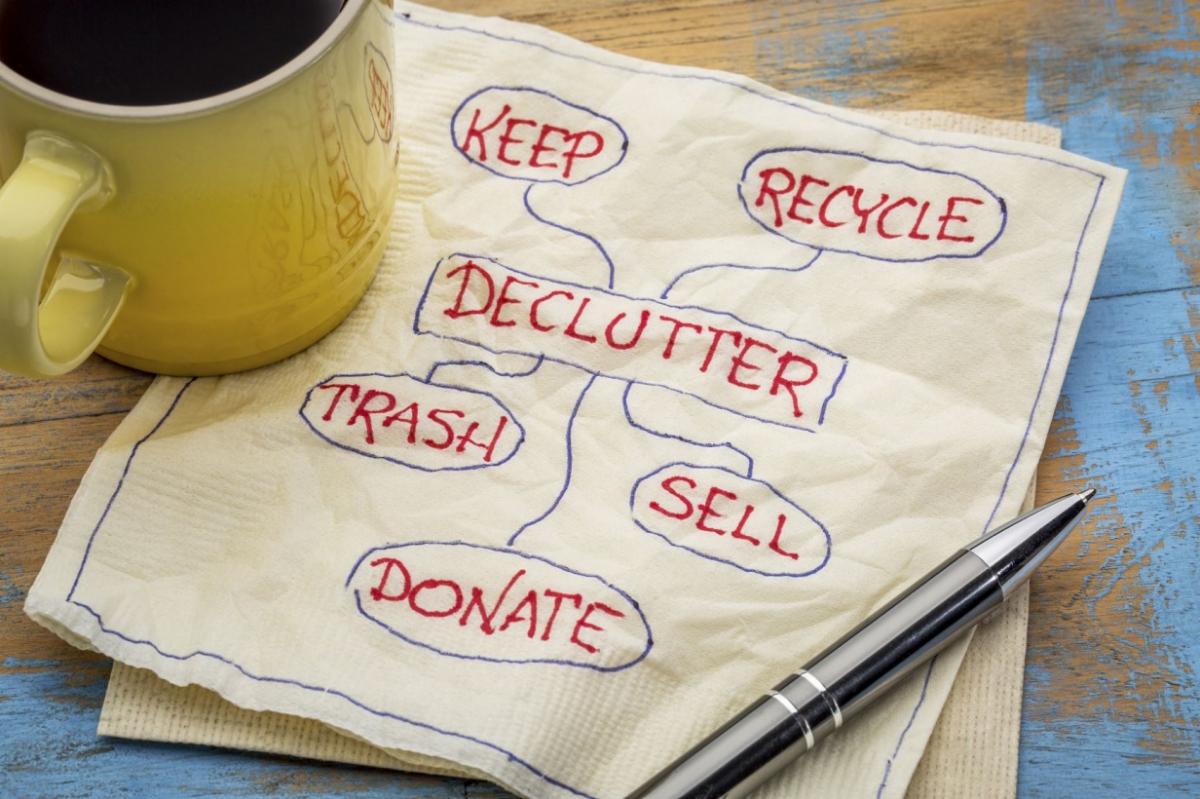
Many families cannot wait for Mom or Dad to get the COVID 19 vaccine so that they can once again visit them at home. But what they see after months of quarantine may surprise them, according to Connecticut home care agency Assisted Living Services, Inc.
“Even if you have been video chatting with elderly family members throughout the pandemic, you aren’t getting the full picture of how they are living day to day,” explained Mario D’Aquila, Chief Operating Officer of Assisted Living Services, Inc. (ALS) in Cheshire. “The physical condition of the house can often be the clearest indicator of a person’s ability to live independently.”
D’Aquila shares that while the pandemic led many people to stockpile essential items, the tendency to hold on to unnecessary stuff increases with age. In fact, research shows that one in 14, or roughly 7% of adults over age 60, have actual hoarding disorder and the prevalence of hoarding increased by 20% with every 5 years of age.
Clutter in the home becomes dangerous as it increases difficulty with the activities of daily living and the risk of falls. It can also be a sign of depression, decreased mobility or cognitive impairment.
“It’s not surprising that people don’t declutter the older they get, because it’s so laborious. It’s physically, mentally and emotionally draining work,” said D’Aquila.
D’Aquila notes this is where a professional caregiver’s services can be invaluable. Not only can ALS Personal Care Assistants physically lift and take away unwanted items, but they can also objectively assess belongings as a non-family member to keep the clearing out process moving along. Home organization is just one of the many household chores that a caregiver can do in addition to vacuuming, dusting, laundry, cleaning bathrooms and washing floors.
“Our care plans are customized to ensure seniors have the assistance they want and need to maintain a clean, safe and organized home, just the way they like it,” said D’Aquila.
The decluttering process can start with clothing, shoes, plastic containers, tools, household supplies, sports equipment, mail, newspapers, books and magazines that have less of an emotional attachment. The next phase may include photographs, financial papers, holiday decorations and memorabilia.
Here are some often overlooked items to declutter:
- Pillows - according to experts at Tempur-Pedic, bed pillows should be replaced after 1-2 years. Decorative pillows can harbor dust mites and bacteria.
- Towels, blankets and washcloths - After so many uses and washes, these items get worn out. Get rid of any that are thinning, raggedy or stained. Use them as rags or donate to a pet shelter.
- Winter coats and accessories that have gone untouched for years can be washed and donated.
- Random food in the pantry and fridge – First check all boxed or canned food for expiration dates and donate unwanted items to the local food pantry. Also check the back of the fridge for anything that is expired and throw it away.
- Expired products - after checking the fridge, head to the bathroom and check the dates on every box and bottle. From shampoo and makeup to ointments and medicine, there is no reason to hang onto personal care products once they have expired. For information on disposing of unused medicines, visit https://www.fda.gov/consumers/consumer-updates/where-and-how-dispose-unused-medicines
- Empty gift cards - check the balance on these cards then ditch the empty ones. Most retailers allow gift card balances to be checked online. Use a marker to write the value on cards with a remaining balance and use as soon as possible. For gift cards that will never be used, either regift them or visit a resale site such as CardCash.
“We focus on correcting the main risk factors that impact seniors and individuals with disabilities the most: falls, medication compliance, fire safety, and rapid access to emergency care,” said D’Aquila.
For more than 24 years, award-winning home care agency Assisted Living Services, Inc. in Cheshire with branch locations in Clinton and Fairfield has provided quality care to residents across Connecticut. Their award-winning CarePlus program blends personal care with technological safety and monitoring devices from sister company Assisted Living Technologies, Inc. Learn more by visiting www.assistedlivingct.com or calling 203.634.8668.